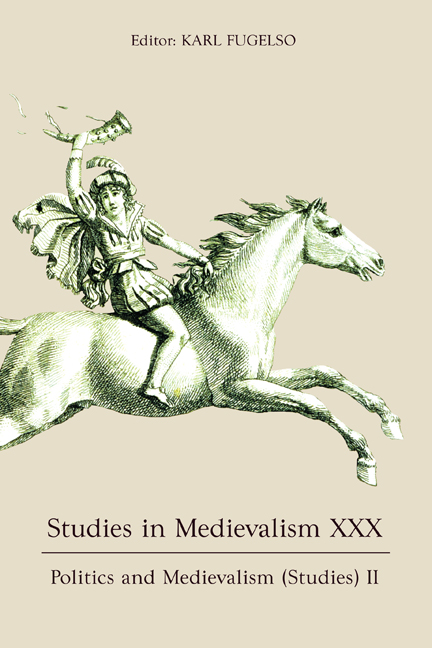The Emasculation of Theon Greyjoy
Published online by Cambridge University Press: 24 March 2021
Summary
In George R. R. Martin's A Song of Ice and Fire and its HBO adaptation Game of Thrones, toxic masculinity is one of the central issues facing the nobility of Westeros in their day-to-day lives. Much of the conflict stems from expectations on men and their frequent inability or lack of desire to live up to these expectations. In the book series, Martin figures toxic masculinity as a major part of a patriarchal, feudal system, a system that the books ultimately argue is unsustainable and flawed. “Toxic masculinity” includes traits such as rigid gender roles, male dominance, aggressive competition with others, misogyny, and homophobia. Toxic masculinity is enforced through social pressure; those who do not or cannot conform are deemed “less than men,” or “womanish,” and may have their social standing lowered or stripped from them entirely.
Under the philosophy that creates toxic masculinity, men are not and cannot be victims, are not and cannot be abused or raped, and must always be in charge of their own fates. Therefore, any man who does find himself a victim of violence or sexual assault, or suffering from post-traumatic stress, or expressing any emotion besides anger, is removed from the category of “real man” and is blamed for his own abuse or mental health. Many of Martin's male characters find ways to live outside the expectations of toxic masculinity and are happier for it. However, in Game of Thrones, the nuance of Martin's critique is lost, and toxic masculinity is instead celebrated and rewarded.
This approach to masculinity is far from unusual in medievalist texts. Amy Kaufman has referred to this approach as “muscular medievalism,” arguing that toxic masculinity and its attendant violence and rape are used as “markers of medieval authenticity” in these texts. Susan Aronstein has also examined masculinist approaches to the Middle Ages, claiming that medievalisms such as reinterpretations of Arthurian legend allow men who fear loss of status or prestige a “history” in which to root their “restored patriarchy.”
- Type
- Chapter
- Information
- Studies in Medievalism XXXPolitics and Medievalism (Studies) II, pp. 175 - 186Publisher: Boydell & BrewerPrint publication year: 2021

